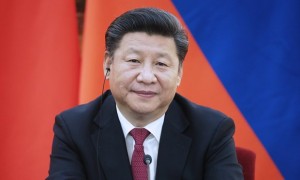UK should rethink China friendship over human rights, Tory group urges
The Guardian, 30 June 2016
By Tom Phillips – Britain should reconsider its “golden” friendship with China as a result of the unprecedented human rights crisis unfolding under president Xi Jinping, Conservative party MPs will warn this week.
In a report set to be launched in Westminster on Tuesday afternoon, MPs and activists will chronicle the rapidly deteriorating situation since Xi took power in late 2012.
The report, called The Darkest Moment, details a severe crackdown on human rights lawyers, the suspected abduction by Chinese security agents of a group of Hong Kong booksellers, the growing use of televised forced confessions andattempts to cow free speech by detaining dissidents, bloggers and journalists.
Fiona Bruce, the chairman of the Conservative party’s human rights commission, said witnesses heard by her group complained of “a severe deterioration in human rights” under Xi, revealing what some now believed was the most intense crackdown since the roundup of protesters following the 1989 Tiananmen massacre.
“China is not what it was five years ago,” China expert Christopher Hancock said in a statement issued by the report’s authors. “It has undergone a 180-degree turn in its political ethos.”
“Outsiders should not attempt – and will always fail – to change China’s political and social behaviour,” Hancock added. “However, British citizens can, and must, attempt to change their government’s hitherto misguided response to it.”
David Cameron and George Osborne have been the architects of a major charm offensive towards Beijing designed to boost economic ties with China and usher in what both Downing Street and the Communist party have called a “golden era” of ties.
Osborne flew into one of China’s most politically sensitive regions last September in a bid to cement the new relationship while Xi praised Britain’s “visionary and strategic choice” to become Beijing’s best friend in the west during a state visit to Britain the following month.
To the dismay of some in the Foreign Office, the strategic pivot towards the world’s second largest economy has been spearheaded by the Treasury, with some dubbing it the “Osborne doctrine”.
Downing Street’s attempts to woo Beijing have infuriated human rights activists, coinciding with a period of severe political repression in China that has seen security forces embark on a wide-ranging offensive against activists, human rights lawyers, outspoken academics and publishers.
Earlier this month pro-democracy leaders in Hong Kong accused China’s leaders of acting like “political thugs” and “gangsters” by allegedly ordering special forces to abduct a group of booksellers who specialised in books critical of the party elite.
Nearly a year after a major offensive against human rights lawyers and activists began, more than 20 people remain in custody facing political subversion charges that could see them jailed for life.
British criticism of the crackdown on lawyers has been muted with officials largely preferring to voice their concerns through EU statements, something that may no longer be possible following last week’s decision to leave the union.
The authors of the Conservative report – which is being published just days after Cameron announced the end of his six-year premiership in the wake of Brexit – argue this must now change.
“In light of [Xi’s crackdown], we believe it is time for the UK government to rethink its approach to China, to speak out publicly and consistently on human rights, and consider ways it can more effectively promote and protect basic rights that are being gravely violated in mainland China and in Hong Kong,” the Conservative party human rights commission said in a statement.
It added: “While we recognise the strategic and economic significance of China, we do not believe that it is in anyone’s interests for the United Kingdom government to be almost silent, publicly, on human rights, in light of such a grave deterioration.”
Analysts believe that irrespective of whether Cameron’s successor chooses to end or intensify Britain’s courtship of China, Beijing itself will be far less interested in the “golden” relationship.
“Brexit condemns the golden thing to history, I think,” said Nick Bisley, a professor of international relations and the executive director of La Trobe Asia.
“Britain’s stock has declined and Britain will be less important to China in its view of the world.”
The report, which will be launched by Conservative peer Lord Patten, the last governor of Hong Kong, calls for a “thorough review” of Britain’s policy towards China.
Those who gave testimony to the commission include Joshua Wong, a prominent leader of the umbrella movement protests, and Teng Biao, a human rights lawyer who was forced to flee China with his family after Xi took power.
In a statement, Chris Patten, whose battles with Beijing over the former British colony saw the Communist party label him “the triple violator”, said Downing Street had to react to “China’s increasingly deplorable human rights record”.


